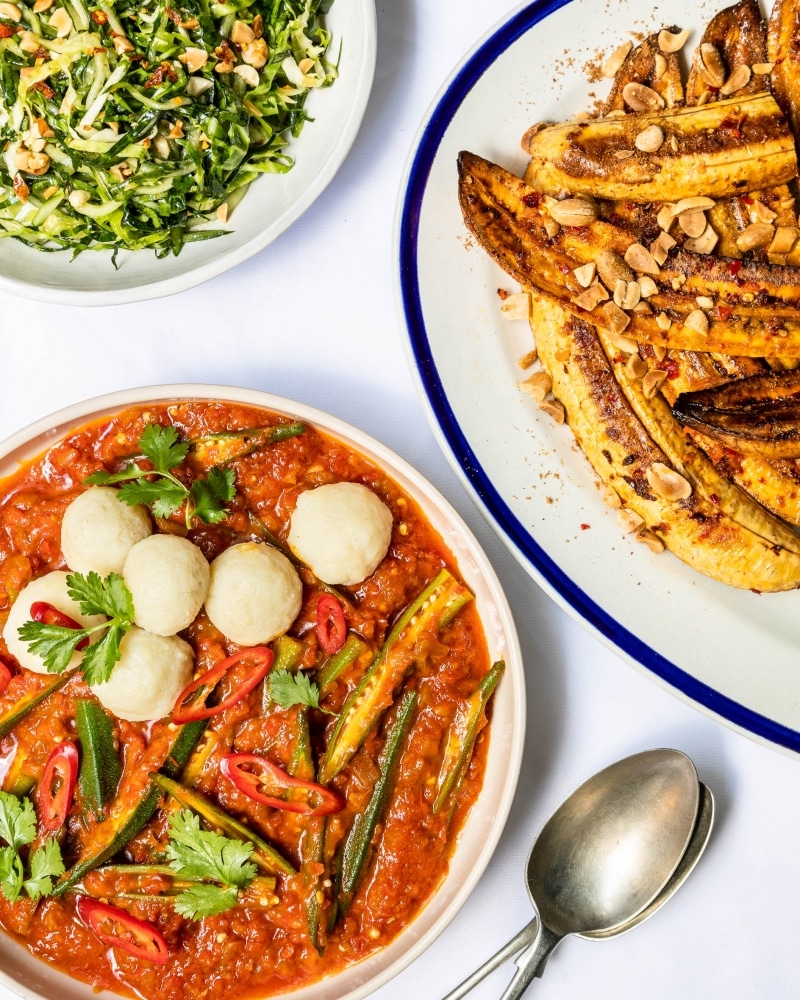The organiser of the Tunbridge Wells events is Mandy Flashman-Wells, who here tells Eileen Leahy all about this year’s theme, how you can support it, and the delicious dishes you can create using Fairtrade ingredients…
Every year a two-week campaign to raise awareness for the Fairtrade movement takes place. The idea is to shine a spotlight on the plight of underpaid and often overworked farmers and producers in developing countries and to help them get a fairer price for their goods – and for the process of producing them.
A different theme is chosen each year, and for 2020 the emphasis is on cocoa farmers – in particular female farmers – to help them earn a decent living income.
“They are dealing with the extreme impacts of climate change – drought, floods and an increase in pests and diseases, affecting both their food crops and cocoa bean production,” explains Mandy Flashman-Wells, who organises the Fairtrade Fortnight events in Tunbridge Wells.
“In addition, the low and unpredictable market price they receive for their cocoa beans means they often cannot meet their basic needs. The struggle to survive is unprecedented. Today the average age of a cocoa farmer is over 50 because many young people cannot see a future in cocoa farming. Female cocoa farmers face a worse situation. They are often overlooked and under-represented, and usually see even less income than equivalent households headed by men.”
Mandy adds that there will also be an added emphasis on climate change this year.
“The climate crisis can often feel overwhelming but there are things we can all do. When we choose to buy Fairtrade chocolate we know that we are taking a stand both for the farmers and for the planet. In addition, we know that producers have been paid a fair price, one that gives them a living income, improving their lives and enhancing the sustainability of the cocoa industry.”
Mandy says that the simple action of choosing Fairtrade chocolate will set off ripples in the chocolate industry that could have overarching results. But there are lots of other ways to help, too, and it is crucial to highlight the impact of climate change.
“We are also working with Tunbridge Wells Borough Council as we want to plant the flowerbed outside the library in the design of the Fairtrade sign. The planting will only feature perennials, as this will be in line with the declaration of a climate emergency that our Council made last year.”
The decision to use perennials is, Mandy says, because annual plants require heat, water, transportation and energy, whereas perennials are more sustainable.
“The fact that flowers such as hydrangeas, campanula and geraniums are blooming as early as January is a big concern, and the explanation for this is undoubtedly climate change,” Mandy continues.
“We may relish the extended growing season in our own garden plants, but for the farming community changes in the climate mean that seasons are becoming unpredictable and difficult to navigate.
“Farmers in the UK find negotiating changing weather patterns is hard enough, but for those in developing countries it places huge challenges, hampered by a lack of resources to help them cope.”
Now try this at home…
Sooji Halwa Ladoo
by Asma Khan, chef, writer and founder of Darjeeling Express
Fairtrade ingredients: saffron, cassia bark, cloves, sugar, raisins, nutmeg, cardamom seeds, cashew nuts. Taste the good: Fairtrade cashew nut farmers in Burkina Faso have spent their Fairtrade Premium on increasing adult literacy, bicycles and cereal banks for food security.
Serves 6-8
Ingredients:
- ¼ tsp good-quality Fairtrade saffron strands
- 1 piece Fairtrade cassia bark, 2.5 cm/1 inch long
- 2 whole Fairtrade cloves
- 150g/5½ oz/¾ cup Fairtrade granulated sugar
- 125ml/4 fl oz/½ cup melted ghee or unsalted butter
- 25g/1 oz Fairtrade raisins (golden or green)
- 200g/7 oz/1¼ cup fine semolina flour
- ½ tsp freshly grated Fairtrade nutmeg
- ½ tsp freshly crushed Fairtrade cardamom seeds
- 40g/1½ oz Fairtrade cashew nuts, chopped
- A few edible rose petals, to garnish (optional)
Instructions:
In a bowl, infuse the saffron strands in 1/2 tsp of tepid water. Set aside.
Place the cassia bark and cloves in a pan and cover with 500ml/17fl oz/2 cups cold water. Bring to a boil over a medium-high heat. Lower the heat, add the sugar to the pan and cook, stirring until all the sugar crystals have dissolved.
In a large non-stick karai, wok or frying pan, heat the melted ghee or butter over a low-medium heat. Add the raisins and stir, then remove them with a slotted spoon just before they expand and burst. Add the raisins to the pan with the sugar syrup.
Now add the semolina flour to the pan with the ghee or butter, together with the grated nutmeg and crushed cardamom seeds. Gently stir until the grains of the semolina darken and smell toasted (approximately 10 minutes). Keep the heat low as you do not want to burn the semolina grains. Remove the pan from the heat and slowly add the sugar syrup, stirring constantly. The contents will sputter initially but then calm down.
Put the pan back on the heat and stir to break up any lumps. Keep the pan on the heat until all the sugar syrup has been absorbed. Towards the end of the cooking, add the chopped cashew nuts and saffron-infused liquid.
Once the halwa is cool enough to handle, roll it into ladoos, or balls. Alternatively, you can serve the halwa as it is, warmed and placed in a serving bowl, and let your guests serve themselves.
To serve, scatter over a few edible rose petals to add a festive flourish to this dish.
For further information, visit twfairtrade.org.uk or email: contact@twfairtrade.org.uk








